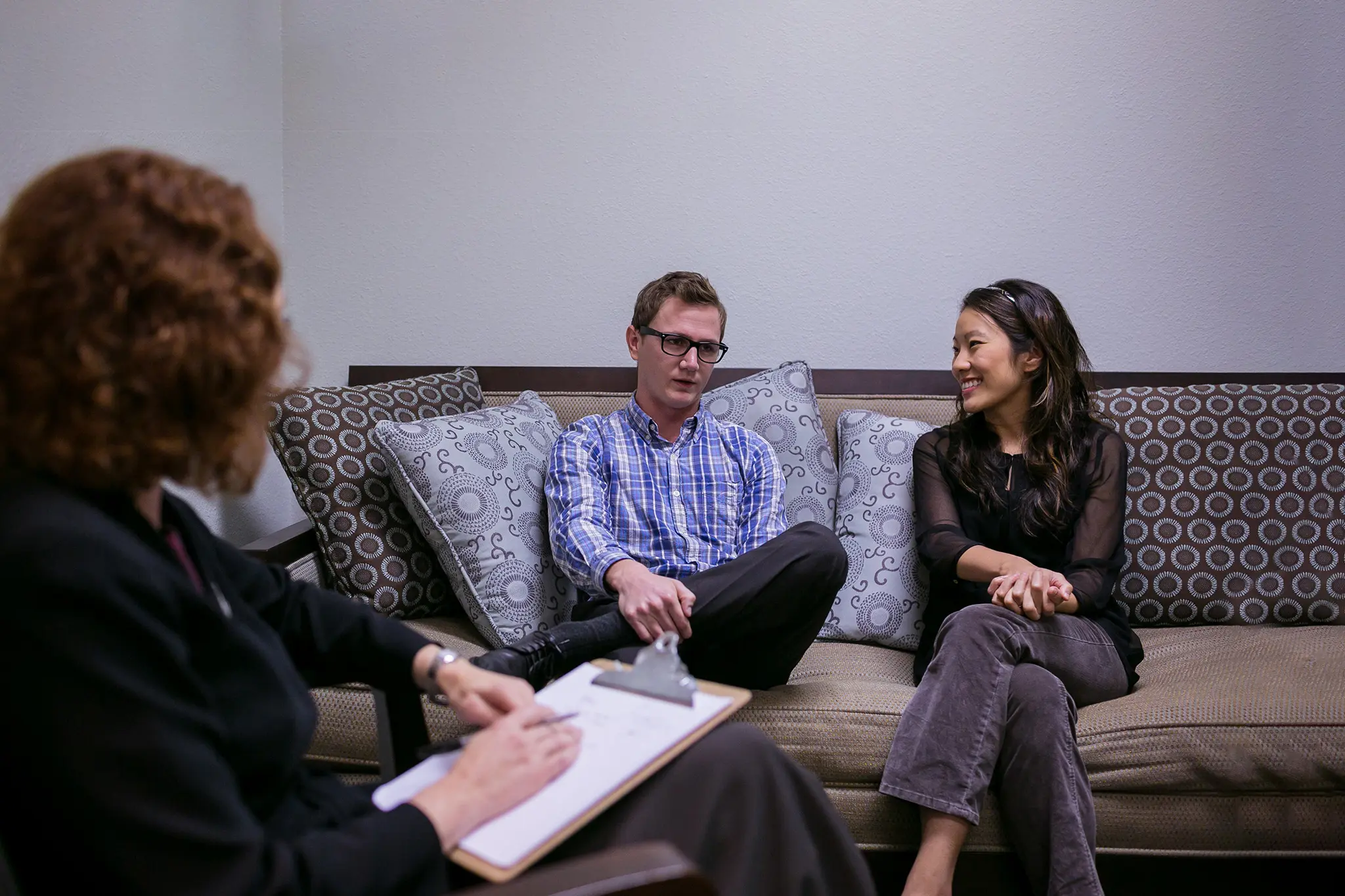
Parent and Guardian Resources
- Home
- >
- University Counseling Center
- >
- Parent/Guardian
Contact Information
Phone: (626) 815-2109Hours
Monday–Friday, 8:30 a.m.-12 p.m., 1-4:30 p.m.
Location
Magnolia CourtWhy Students Seek Counseling
College is a period of immense growth, often accompanied by significant stress. The UCC is here to help. Students visit us for various reasons: navigating college pressures, building healthier relationships, or coping with anxiety or depression. We offer a supportive space for students to explore their thoughts, feelings, and behaviors, empowering them to thrive at APU and beyond.
Services Available to Students
All enrolled APU students receive free, confidential counseling services. We offer in-person sessions at our Azusa campus and teletherapy. During the first session, our counselors assess a student’s needs and recommend the best path forward. Our brief counseling model effectively addresses many common college student concerns. For more complex needs, we partner with community providers for high-quality specialist referrals.
Resources for Parents/Guardians
The college transition is a journey for parents too. It’s normal to feel a mix of pride, concern about increasing independence, and anxiety over their choices. We encourage parents to be realistic about their emotions and patient as they navigate this new phase of their relationship with their child.
The UCC offers consultations by phone and in person. If you’re worried about your student and are unsure what to do, call us, identify yourself as a parent/guardian, and ask to speak with a counselor. This service is usually available immediately. You can also use our APU CARES process to express concerns to appropriate university personnel.
Note: While legally bound by confidentiality, we’ll do our best to assist you with your concerns.
Parents/Guardians and Confidentiality
As a professional counseling service, our staff is required to restrict the sharing of counseling-related information. In accordance with professional ethics and California state law, any information disclosed in the context of a professional counseling relationship is considered confidential. This means that what is shared by a student in counseling sessions is not discussed with any person outside of the UCC, with the following exceptions: (1) the student gives written permission to share his or her counseling-related information with a third party; (2) a counselor believes that the student may harm himself/herself or another person; (3) a counselor suspects the abuse of a child, elder, or other dependent adult. Unless the counselor has obtained a signed release from a student, or perceives that a student may be in immediate danger, the UCC will not be able to share any information with a parent/guardian related to the student’s sessions.
We understand that parents/guardians often think they should be able to know about what their child may be discussing in counseling, and that confidentiality requirements are often a source of frustration. We encourage those who desire to know more about their student’s counseling experience to talk with their student. On the whole, students tend to respond positively to open, honest communication. Though at times a student may choose to limit your involvement, we find that the majority appreciate your concern, acceptance, and guidance in the midst of the struggles they may face while at APU.